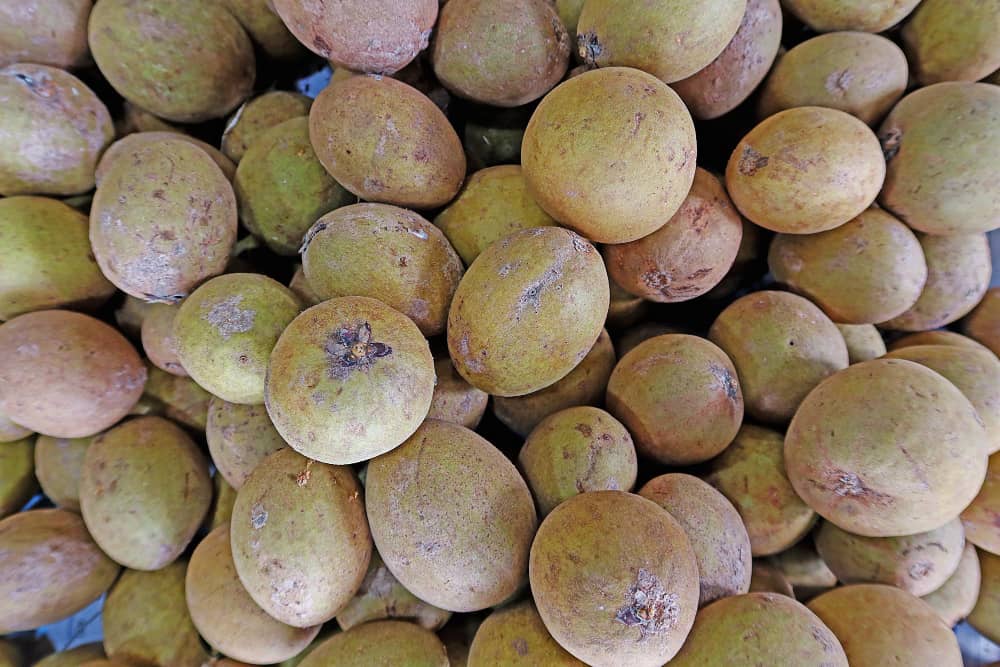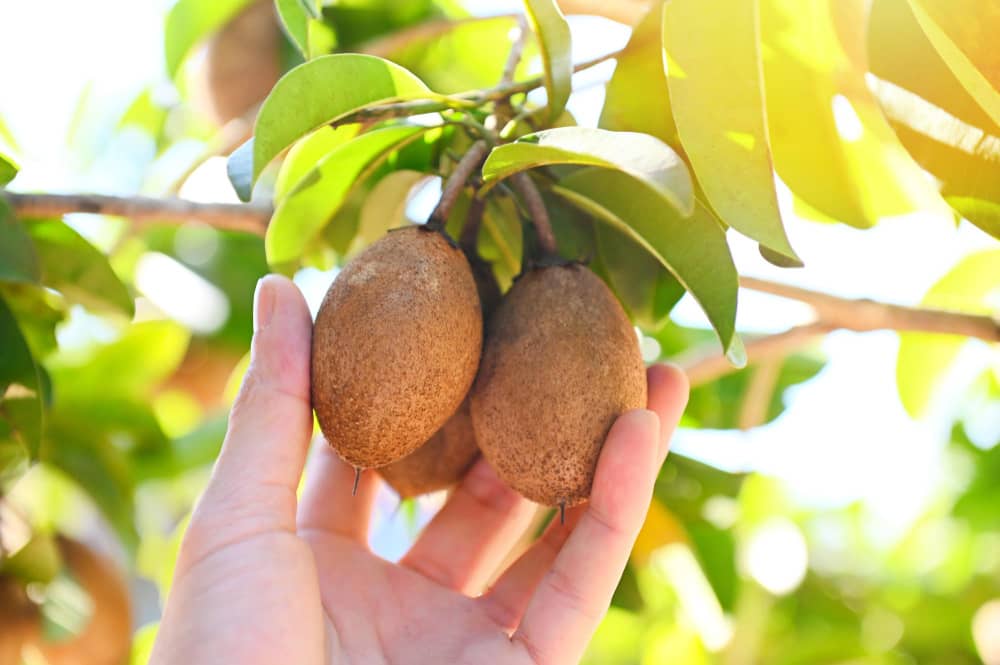Many people are not aware of the Health Benefits of Sapota. Sapota, also known as chikoo or sapodilla, is a superfood that is packed with numerous health benefits. This fruit has a brownish outer skin and a soft, creamy pulp inside that is rich in vitamins and minerals. Sapota is native to Central America but can now be found in tropical regions around the world.
Sapota is one of the most underrated superfoods around, and it’s about time that it got the recognition it deserves. This amazing little fruit is native to India, and it has a whole host of health benefits that you might not know about. It’s packed with essential vitamins and minerals, and it can help to improve a huge range of ailments, from digestive issues to vision problems. In this article, we’ll look at the nutritional profile of Sapota, the health benefits it can provide, and exactly why you should start incorporating it into your diet.
What is Sapota?
Sapota, also known as chikoo, is a nutrient-dense, sweet fruit native to South Asia, Central America, the Caribbean, and Mexico. It is a member of the Sapotaceae family and is related to both the mango and the cherimoya. It has a unique, sweet flavor and is often used to make sherbets, drinks, and even jams.
Sapota is a superfood due to its high levels of nutrition and health benefits. It contains numerous vitamins and minerals, including iron, calcium, phosphorous, potassium, magnesium, vitamin C, and B-complex vitamins. It is also rich in antioxidants, which can help reduce the risk of chronic disease. Sapota also contains dietary fiber, which can help lower blood cholesterol levels and promote a healthy gut.
In terms of its taste, sapota has a sweet and creamy flavor, which makes it a popular choice for desserts. Its flesh can be sliced and added to salads, or used in smoothies and milkshakes. It can be eaten fresh, dried, or cooked into a variety of dishes.
Sapota is a great source of nutrition and has numerous health benefits. It is a highly recommended addition to any diet, whether you’re looking for a healthy snack or a tasty dessert. So, why not give sapota a try today and enjoy its unique flavor and health benefits?

Nutritional Profile of Sapota
Sapota is a nutrient-dense superfood full of vitamins, minerals, and other essential features. It is also low in calories and a great snack for anyone looking to stay healthy. In this section, we will discuss the vitamins, minerals, and calories found in sapota.
Vitamins
Sapota, also known as chiku, is an excellent source of vitamins. It contains a high amount of vitamin C, as well as other vitamins like A, B1, B2, B3, and B6. Vitamin C is important for strong immune system, healthy skin and connective tissue, and can help protect against oxidative damage. Additionally, sapota contains a range of other minerals like potassium, calcium, and magnesium. These minerals can help to support overall health and well-being.
Minerals
Sapota is a good source of many key minerals that are vital for overall health and well-being. Among these minerals, Sapota is especially rich in Magnesium, Phosphorus, and Potassium. Sapota also contains small, but significant, amounts of Iron, Zinc, and Copper. Magnesium is important in muscle function and for maintaining healthy bones, Phosphorus helps with cell growth and repair, and Potassium is important for nerve and muscle function. All these minerals work together to help support a healthy immune system.
Calories
Sapota is a nutrient-rich fruit that contains very few calories. One hundred grams of Sapota contains only 70 calories, making it an ideal snack for those looking to control their caloric intake. It is low in fat and contains no cholesterol at all. This makes it a healthy snack choice for those looking to maintain a balanced diet.

What Are the Health Benefits of Sapota?
Sapota, also known as chikoo or sapodilla, is a superfood with a range of beneficial nutrients. From aiding digestion, to potentially lowering blood sugar levels, there are a variety of potential health benefits attributed to sapota. In this section, we will explore the potential health benefits of sapota, including how it may help to lower blood sugar levels, its potential benefits for the heart, its ability to provide an antioxidant boost, its potential to improve vision, and its possible anti-inflammatory properties.
Good for Digestion
Sapota, also known as chikoo or sapodilla, is an exotic superfood that is packed with fiber, vitamins, and minerals. It is an excellent source of dietary fiber, which helps promote healthy digestion, reduce constipation and improve overall gastrointestinal health. Sapota is also a good source of iron, potassium, and magnesium, all of which play an important role in digestion. The high fiber and water content of Sapota helps to keep the stomach and intestine healthy.
May Help To Lower Blood Sugar Levels
Sapota, also known as chiko or chiku, has been found to help regulate blood sugar levels in the human body. Research has shown that consuming the fruit can help reduce the risk of high blood sugar levels and may even improve glucose tolerance in diabetic patients. This is due to the presence of bioactive compounds such as polyphenols, which have been found to help regulate the release of glucose in the body. Additionally, sapota is also a rich source of dietary fiber, which can help slow down the absorption of glucose from the small intestine, further aiding in the regulation of blood sugar levels. Therefore, regular consumption of Sapota may aid in maintaining healthy blood sugar levels.
Potential Benefits for the Heart
Sapota, or chiku, is a tropical fruit packed with vitamins and minerals that may offer health benefits for the heart. High in fiber, sapota can help to reduce cholesterol levels, regulate blood sugar and reduce inflammation in the body that can cause a variety of cardiovascular diseases. Studies have suggested that sapota may help to reduce the risk of arterial plaque buildup, which is a contributing factor to stroke and heart attack. Additionally, sapota contains high levels of antioxidants and magnesium, both of which are important for normal heart function. Overall, consuming sapota may help to reduce the risk of heart disease and other cardiovascular issues.
Provide an Antioxidant Boost
Sapota, also known as Chiku, is a superfood that may provide an antioxidant boost to your diet. Antioxidants help protect our cells from oxidative damage, a process that can lead to inflammation and diseases such as cancer, cardiovascular disease, and diabetes. Studies have shown that eating foods rich in antioxidants can help reduce the risk of developing these diseases. Sapota is a great source of antioxidants, containing several flavonoids as well as vitamins A and C. Furthermore, it contains several minerals, including potassium and magnesium, that can also help protect cells from damage. By incorporating Sapota into your diet, you may be able to benefit from its antioxidant-rich properties.
May Help To Improve Vision
Long known as a superfood, Sapota may provide several health benefits that make it an excellent addition to any diet. One benefit is that it may help to improve vision. Sapota is a good source of Vitamin A, which is important for eye health because it helps to protect retinal cells. Vitamin A can also improve night vision and protect against some age-related vision loss. In addition, Sapota contains lutein and zeaxanthin, two antioxidants that can help maintain healthy vision and reduce the risk of macular degeneration, a leading cause of vision loss in the elderly.
May Have Anti-Inflammatory Properties
Sapota has been studied for its possible anti-inflammatory properties. Research has shown it to reduce inflammation in some circumstances, but more studies are needed to understand the full extent of its potential benefits. It is thought that the high amount of antioxidant compounds present in sapota, such as carotenoids, may be responsible for its ability to reduce inflammation. Sapota is also rich in vitamins, minerals, and dietary fiber, which are all important for promoting overall health and reducing inflammation in the body.
Conclusion
In conclusion, Sapota is an incredibly beneficial superfood that can offer many advantages to both your health and wellbeing. Its unique and highly nutritious nutritional profile includes vitamins and minerals like potassium, iron, and magnesium, which are essential for optimal health. It also contains low calories, making it a great addition to any diet. Additionally, Sapota may help to improve digestion, lower blood sugar levels, and even benefit the heart by providing an antioxidant boost. Furthermore, it has the potential to improve vision and reduce inflammation. All in all, Sapota is an excellent choice for health-conscious individuals who want to enjoy the many benefits of a nutrient-rich superfood.
Disclaimer
The information contained in this post is for general information purposes only. These statements have not been evaluated by the FDA and are not intended to diagnose, treat, cure or prevent any disease or health condition. If you have specific healthcare concerns or questions about the products displayed, please contact your licensed healthcare professional for advice or answers.

